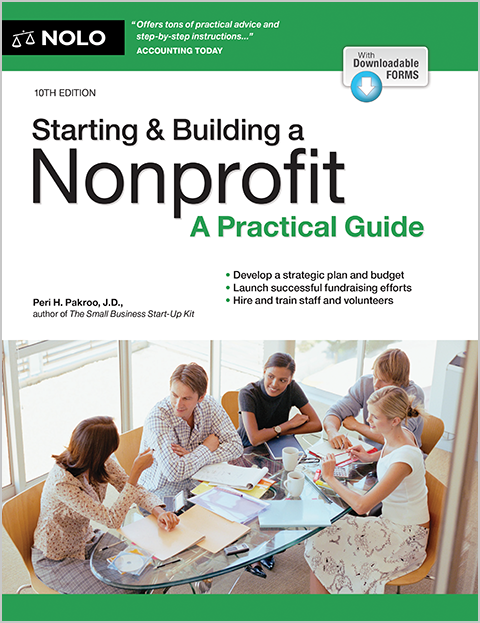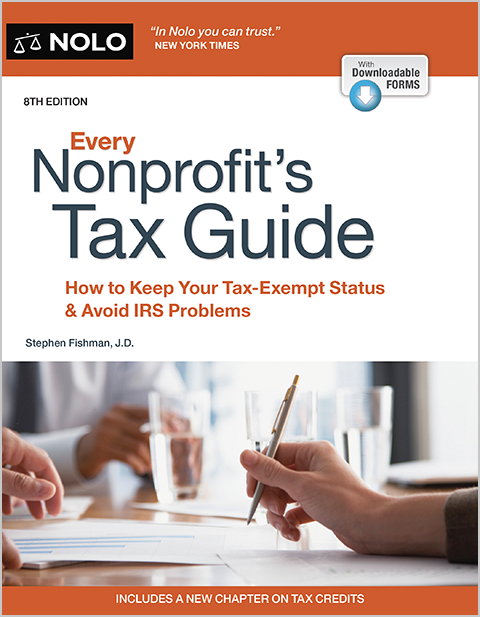Learn about this alternative to forming your own nonprofit.
Suppose that a close relative of yours dies tragically young from cancer. To celebrate her memory, and do some good in your community, you and other family members want to create an annual fundraising event for charity and solicit tax-deductible contributions. Do you need to form a full-fledged nonprofit corporation and get it qualified with the IRS to do this? The answer is no, there is an alternative to forming your own nonprofit: it's called fiscal sponsorship.
Fiscal sponsorship means you team up with an established nonprofit—your sponsor—to accomplish your charitable goals. Your fiscal sponsor is a tax-exempt entity that provides your project with administrative, accounting, fundraising, and legal services, freeing you from having to spend time on these onerous tasks. Teaming up with such a sponsor can enable your project to solicit tax-deductible contributions from the public without having to be separately recognized as tax-exempt by the IRS. In return, your sponsor receives a fee for its services—typically a percentage of the funds collected on your project's behalf (anywhere from 5% to 15% are common percentages).
Fiscal sponsorships can take a variety of forms. The two most common types are:
- comprehensive fiscal sponsorship, and
- pre-approved grant relationship fiscal sponsorship.
Comprehensive Fiscal Sponsorship
In a comprehensive fiscal sponsorship, the sponsor owns the project. When you choose this model, your project does not have a separate legal existence. Instead, you enter into a written fiscal sponsorship agreement with the sponsor in which you agree that your project will become one of the sponsor's programs. The sponsor will be in charge, legally and monetarily—however, an advisory committee may be established to help the sponsor run the project. The sponsor will own all the work product created by or for the project—websites, fundraising materials, mailing lists, and everything else. You may work on the project as an unpaid volunteer or as an employee, paid by the sponsor or outside contractor. The sponsor may delegate authority to run the project, and fundraise on its behalf, to you or other volunteers, employees, or contractors. Moreover, donations given specifically to support your project will be treated as restricted funds that must be used for your project. However, the sponsor has the ultimate authority to decide how to spend the money.
This model is often used to "incubate" new nonprofits—if the program proves successful, it can be spun off into a new independent nonprofit. The fiscal sponsorship agreement should make clear how ownership of the project assets and liabilities will be dealt with if such a spin-off occurs.
This model can also be useful for short-term projects, such as receiving memorial contributions, raising funds following a local disaster, or building a new playground, or dog park. Forming a new nonprofit corporation for a short-term project—and then liquidating it when the project ends—can take more time and trouble than its worth.
Pre-approved Grant Relationship Fiscal Sponsorship
In a pre-approved grant relationship sponsorship, the project does not belong to the sponsor. Rather, it exists as a separate entity responsible for managing its programmatic, legal, and tax issues. The project applies for a grant or grants from the sponsor. The fiscal sponsor funds the grants with money it collects from the public, foundations, and other funding sources. All contributions are tax deductible since they are made to the fiscal sponsor, which is a tax-exempt Section 501(c)(3) charity. If project volunteers or employees fundraise, they do so as agents of the fiscal sponsor.
The sponsor may or may not have any ownership rights in the work product created by the project. This is something that needs to be worked out in a fiscal sponsor agreement. But the sponsor is supposed to ensure that the money it collects is actually used for the purposes set forth in the grant proposal. This model is often used for projects involving the arts.
Pros and Cons of Fiscal Sponsorship
If you don't know much about running a nonprofit and don't want to go to the time and trouble to learn, the comprehensive fiscal sponsorship model can be a good option. It can enable you to have an experienced nonprofit help you deal with all the nuts and bolts, while you concentrate on what you're good at: fundraising and other aspects of running your project. However, if you enter into a comprehensive fiscal sponsorship arrangement, you'll need to give up ultimate control over the project.
The pre-approved grant relationship sponsorship model can be a good option if you're seeking tax deductible grants for your project, but don't want to go to the trouble of forming your own tax-qualified Section 501(c)(3) nonprofit.
Perhaps the biggest con of fiscal sponsorship is that it can be very difficult to find a sponsor willing to work with you. You need to find a sponsor with a similar charitable mission and vision, as well as one with adequate financial resources and the know-how you need to help get your project off the ground. There are some nonprofits that specialize in serving as fiscal sponsors. Others, such as community foundations, dabble in the field. You can find a national directory of many fiscal sponsor organizations at www.fiscalsponsordirectory.org/index.php.
Unfortunately, it can be more difficult to obtain a sponsor than to form your own nonprofit. This is especially true now that the IRS has created a simplified application for small nonprofits to obtain Section 501(c)(3) status—Form 1023-EZ—that is often processed by the IRS in just a few weeks. In other words, finding a fiscal sponsor and completing its sponsorship application can be harder and more time-consuming task than forming your own nonprofit corporation and getting it approved as tax-exempt by the IRS. But if you decide to form a nonprofit, you also take on certain ongoing IRS and other responsibilities so make sure you understand what you are undertaking if you decide to go that route.



